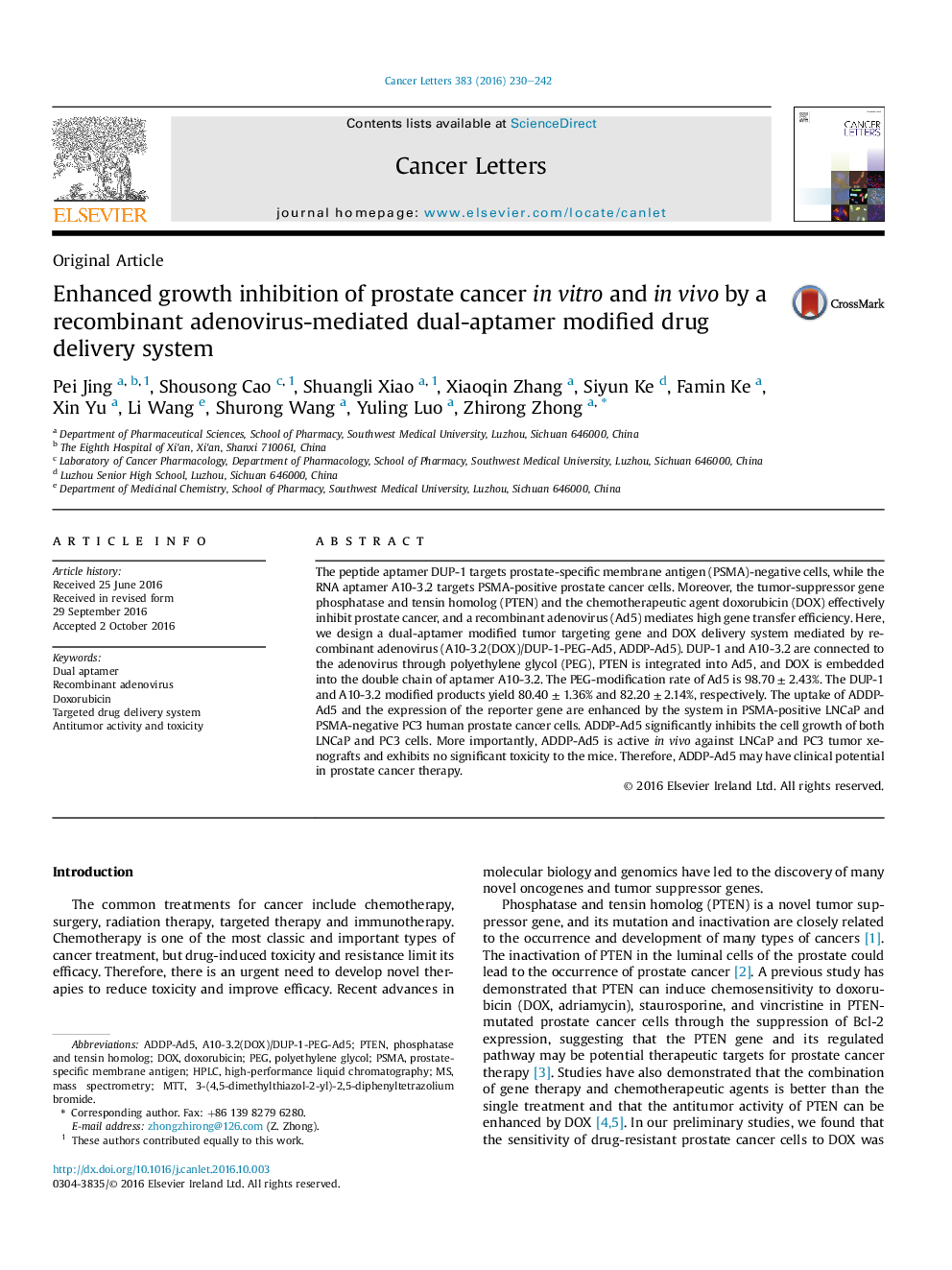| Article ID | Journal | Published Year | Pages | File Type |
|---|---|---|---|---|
| 5525459 | Cancer Letters | 2016 | 13 Pages |
â¢Successfully established a dual aptamer modified tumor targeting gene and DOX delivery system mediated by recombinant adenovirus.â¢The uptake of ADDP-Ad5 and expression of reporter gene are enhanced by the system in LNCaP and PC3 cells.â¢ADDP-Ad5 significantly inhibits the cell growth of LNCaP and PC3 cells but not WPMY-1 cells.â¢ADDP-Ad5 is active in vivo against LNCaP and PC3 tumor xenografts and has no or slight toxicity to the mice.
The peptide aptamer DUP-1 targets prostate-specific membrane antigen (PSMA)-negative cells, while the RNA aptamer A10-3.2 targets PSMA-positive prostate cancer cells. Moreover, the tumor-suppressor gene phosphatase and tensin homolog (PTEN) and the chemotherapeutic agent doxorubicin (DOX) effectively inhibit prostate cancer, and a recombinant adenovirus (Ad5) mediates high gene transfer efficiency. Here, we design a dual-aptamer modified tumor targeting gene and DOX delivery system mediated by recombinant adenovirus (A10-3.2(DOX)/DUP-1-PEG-Ad5, ADDP-Ad5). DUP-1 and A10-3.2 are connected to the adenovirus through polyethylene glycol (PEG), PTEN is integrated into Ad5, and DOX is embedded into the double chain of aptamer A10-3.2. The PEG-modification rate of Ad5 is 98.70 ± 2.43%. The DUP-1 and A10-3.2 modified products yield 80.40 ± 1.36% and 82.20 ± 2.14%, respectively. The uptake of ADDP-Ad5 and the expression of the reporter gene are enhanced by the system in PSMA-positive LNCaP and PSMA-negative PC3 human prostate cancer cells. ADDP-Ad5 significantly inhibits the cell growth of both LNCaP and PC3 cells. More importantly, ADDP-Ad5 is active in vivo against LNCaP and PC3 tumor xenografts and exhibits no significant toxicity to the mice. Therefore, ADDP-Ad5 may have clinical potential in prostate cancer therapy.
